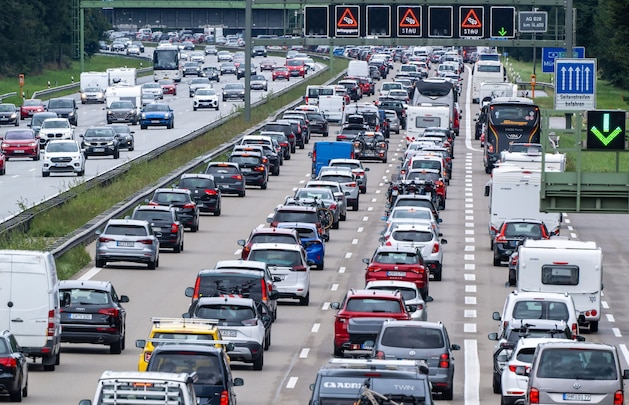Despite reduced energy consumption and a high proportion of renewable energies, Germany again failed to meet the targets for reducing greenhouse gas emissions in 2022. The main reason for this is the increased coal-fired power generation due to the record prices for natural gas, as the think tank Agora Energiewende announced in its evaluation published on Wednesday. The targets were also missed again in the transport and building sector, explained the experts and called for a “trend reversal” in 2023.
According to Agora Energiewende, emissions amounted to around 761 million tons of CO2 last year and thus stagnated “at a high level”. The emission target of 756 million tons of CO2 was therefore exceeded by five million tons. The reduction in emissions was also almost 39 percent compared to the reference year 1990 – and thus for the second time behind the target of 40 percent achieved in 2020.
Energy consumption in 2022 fell by 4.7 percent compared to 2021 and the share of renewable energies rose to a record high of 46 percent, it said. This was partly due to the favorable weather.
However, the increased use of coal and oil for cost and capacity reasons has nullified the emission reductions that had been achieved. Instead, CO2 emissions in the energy sector even increased by eight million tons year-on-year. According to Agora Energiewende, there were two gigawatts more coal capacity on the market at the end of 2022 than at the end of 2021. This is “clearly inconsistent with the climate targets”, the experts explained and called for a phase-out by 2030.
“The record year for renewable energies is weather-related and therefore not a structural contribution to climate protection,” Agora Director Simon Müller classified the results. In fact, there hasn’t been much progress in the expansion of wind energy, for example. The government must “fix this quickly, because we need to triple the construction from 2023 to reach the 2030 renewables target,” he added. Above all, the “rapid expansion of solar energy” could “quickly dampen prices”.
Despite the increased use of coal and oil as a substitute for natural gas, the industry recorded a slight drop in emissions of eight million tons, which according to Agora is mainly due to reduced production in addition to savings measures. In this way, the sector is meeting its climate target, but without taking any structural measures for sustainable climate protection.
According to Agora Energiewende, the emission targets in the areas of transport and buildings were missed again: With 113 million tons of CO2, the building sector exceeded the sector target by five million tons – even though the energy crisis led to a sharp drop in consumption, especially for natural gas. The Agora experts criticized “years of neglect in the heat transition”.
In traffic, CO2 emissions of 150 million tons were also “well above the permitted value of 139 million tons of CO2,” it said. Above all, there was a lack of political measures to reduce emissions in this sector, criticized Agora Energiewende.
The German Nature Conservation Association (DNR) described it as a “scandal that parts of the federal government – despite the foreseeable failure to meet targets – continue to actively prevent climate protection”. The Ministry of Transport has still not presented an immediate program to close the gap in the transport sector by 2030.
The Green politician Katharina Dröge also called on Minister Volker Wissing (FDP) to “urgently more speed and more ambition in order to finally provide sufficient and concrete proposals for meeting the climate goals”. One measure alone is not enough, she told AFP, reforms are needed in the commuter allowance and the company car privilege, as well as more investment in rail and local transport.
